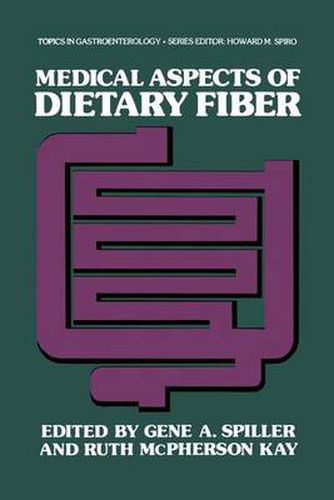Readings Newsletter
Become a Readings Member to make your shopping experience even easier.
Sign in or sign up for free!
You’re not far away from qualifying for FREE standard shipping within Australia
You’ve qualified for FREE standard shipping within Australia
The cart is loading…






This title is printed to order. This book may have been self-published. If so, we cannot guarantee the quality of the content. In the main most books will have gone through the editing process however some may not. We therefore suggest that you be aware of this before ordering this book. If in doubt check either the author or publisher’s details as we are unable to accept any returns unless they are faulty. Please contact us if you have any questions.
Dietary therapy has always been important to medical practice even if it has more often been sacramental than physiological in effect. You are what you eat meant a lot to primitive tribes whose new leader had to eat part of his predecessor, and giving diets brought out the priest in the physician even if he or she had heard that nothing that enters into a man defiles a man.
What people eat began to take on new meaning, however, a generation ago when Schoenheimer and others made clear that body fat and muscle protein were not the sluggish unchanging masses they had appeared but instead were store houses of energy and material influenced by food, activity, and metabolic pro cesses. Fiber, or residue as it was then still called, however, seemed unimpor tant; even the gastroenterologist concerned with keeping the bowels open by three cooked fruits, three cooked vegetables, and twelve glasses of water each day sometimes felt like a shaman if his cure for constipation worked. Nobody any longer read Arbuthnot Lane’s charming Victorian book, The Way Out, which placed the blame for most human ailments on constipation; Lane even removed the bowel to cure the costive ills. Burkitt revived a scientific interest in fiber and the possible connection between diet. constipation, and many physical disorders by observing the vol ume and frequency of stools on an African diet and on an English diet.
$9.00 standard shipping within Australia
FREE standard shipping within Australia for orders over $100.00
Express & International shipping calculated at checkout
This title is printed to order. This book may have been self-published. If so, we cannot guarantee the quality of the content. In the main most books will have gone through the editing process however some may not. We therefore suggest that you be aware of this before ordering this book. If in doubt check either the author or publisher’s details as we are unable to accept any returns unless they are faulty. Please contact us if you have any questions.
Dietary therapy has always been important to medical practice even if it has more often been sacramental than physiological in effect. You are what you eat meant a lot to primitive tribes whose new leader had to eat part of his predecessor, and giving diets brought out the priest in the physician even if he or she had heard that nothing that enters into a man defiles a man.
What people eat began to take on new meaning, however, a generation ago when Schoenheimer and others made clear that body fat and muscle protein were not the sluggish unchanging masses they had appeared but instead were store houses of energy and material influenced by food, activity, and metabolic pro cesses. Fiber, or residue as it was then still called, however, seemed unimpor tant; even the gastroenterologist concerned with keeping the bowels open by three cooked fruits, three cooked vegetables, and twelve glasses of water each day sometimes felt like a shaman if his cure for constipation worked. Nobody any longer read Arbuthnot Lane’s charming Victorian book, The Way Out, which placed the blame for most human ailments on constipation; Lane even removed the bowel to cure the costive ills. Burkitt revived a scientific interest in fiber and the possible connection between diet. constipation, and many physical disorders by observing the vol ume and frequency of stools on an African diet and on an English diet.